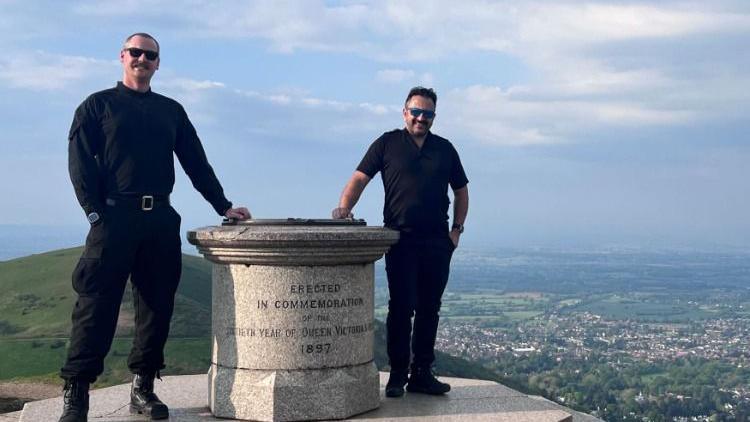Aid convoy rescued after rainstorm ruins roads
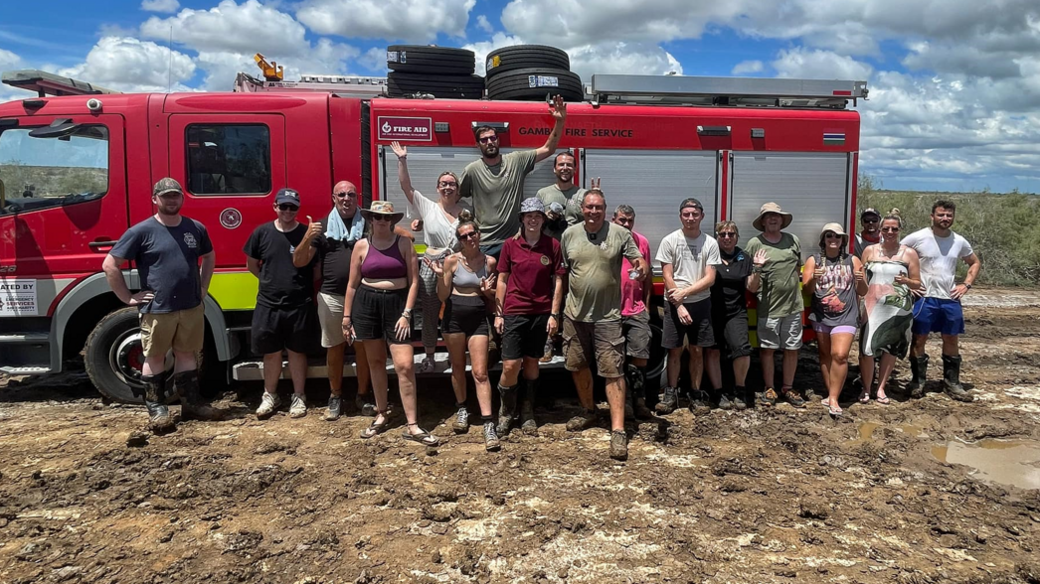
Ffion Robinson was part of a group of volunteers taking unwanted fire engines more than 3,000 miles to The Gambia
- Published
A group of volunteers delivering reconditioned emergency vehicles to The Gambia have had to be rescued after becoming bogged down in muddy roads in Mauritania.
The group, which includes five officers from West Mercia Police, is part of a larger convoy involved in an aid mission organised by the Emergency Services Aid Charity.
“The pictures look a bit like a Top Gear road trip,” said Nuala Robinson, from Upton upon Severn, whose daughter Ffion Robinson is one of the volunteers.
She said it had been concerning because they were stuck in hot, humid conditions with little water or shelter and surrounded by mosquitos.
Their part of the convoy, made up of seven fire engines and 21 volunteers, along with a number of support vehicles, set off earlier this month, from Defford in Worcestershire.
In total, 25 unwanted emergency vehicles were being taken to The Gambia, with a team of 65 volunteers driving them across Europe and Africa.
The convoy including Ms Robinson's daughter had got around two-thirds of the way through their journey when they got caught caught in a rain storm in Mauritania on Tuesday, close to the border with Senegal.
Ms Robinson said the team became bogged down in a quagmire when the roads disintegrated and were unable to free themselves.
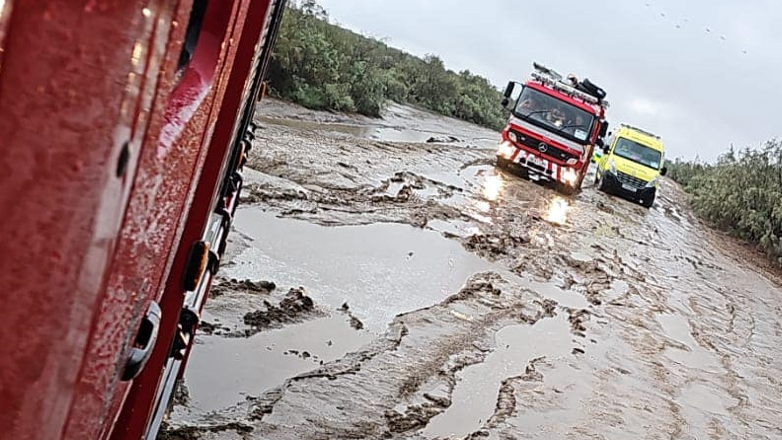
Muddy roads in Mauritania made it impossible for the fire engines to continue
Ms Robinson said the aid volunteers been "surrounded by mosquitos and were being eaten alive" while they waited for help to arrive.
She also said they had been forced to eat their supply of army rations and that drinking water had been running low.
Because it was too humid to sleep in their tents, some had been sheltering in the cabs of their vehicles.
"Some were in a right state with heat exhaustion," Ms Robinson said.
At that point they called for help. “It got a bit serious, so we started phoning round to find a way of helping them," she added.
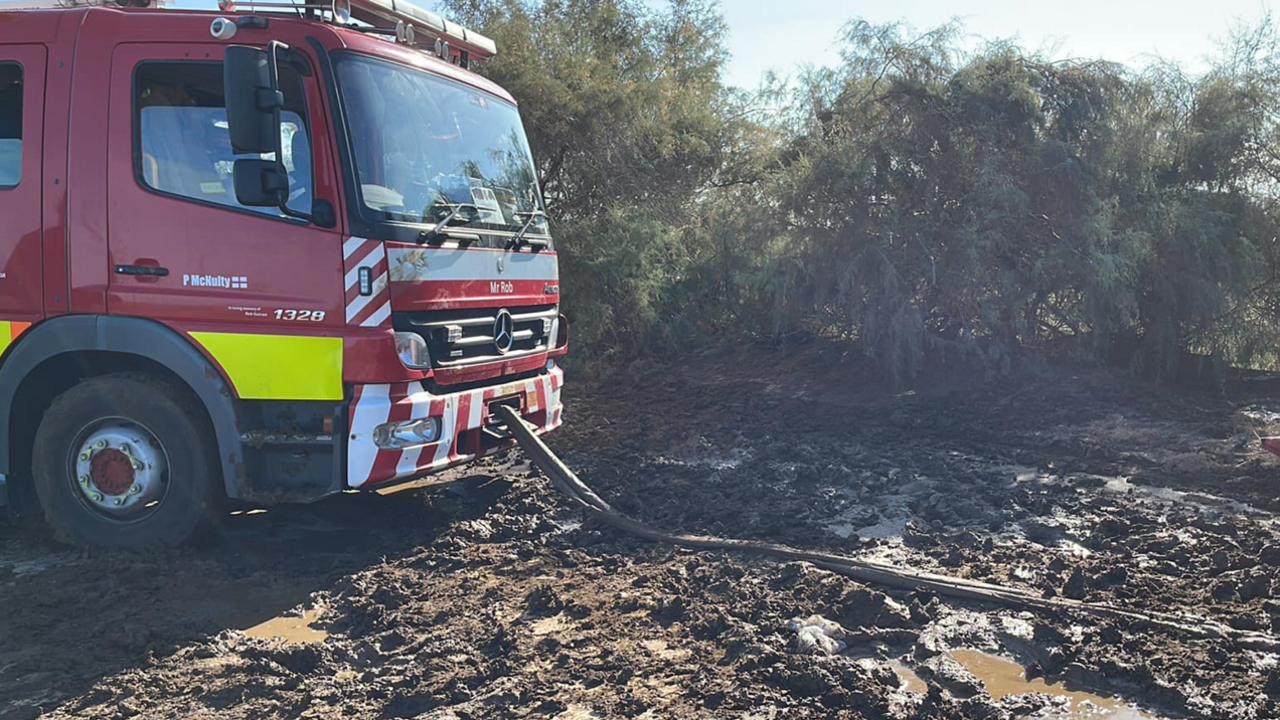
It took between three and four hours to tow each of the seven stuck fire engines
The area they became stuck in is mostly desert and largely unpopulated, but a tractor was found on Thursday to tow them out.
The country’s ambassador was also able to arrange supplies of food and water.
But they had to be moved one at a time for several miles down a muddy road and it took until Friday to get them all on the move again.
The delay, and an earlier one at the Moroccan border, will mean they are likely to reach their destination a few days late but hope to fly home after delivering the vehicles on Sunday.
Get in touch
Tell us which stories we should cover in Hereford & Worcester
Follow BBC Hereford & Worcester on BBC Sounds, Facebook, external, X, external and Instagram, external.
Related topics
- Published12 September 2024
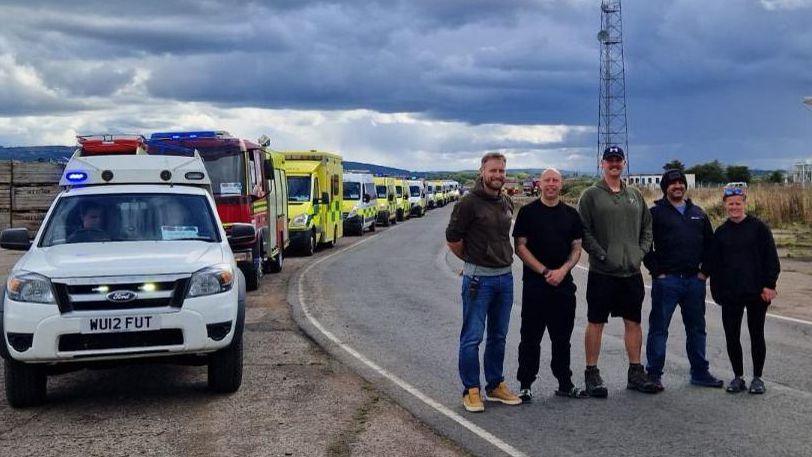
- Published10 May 2024
